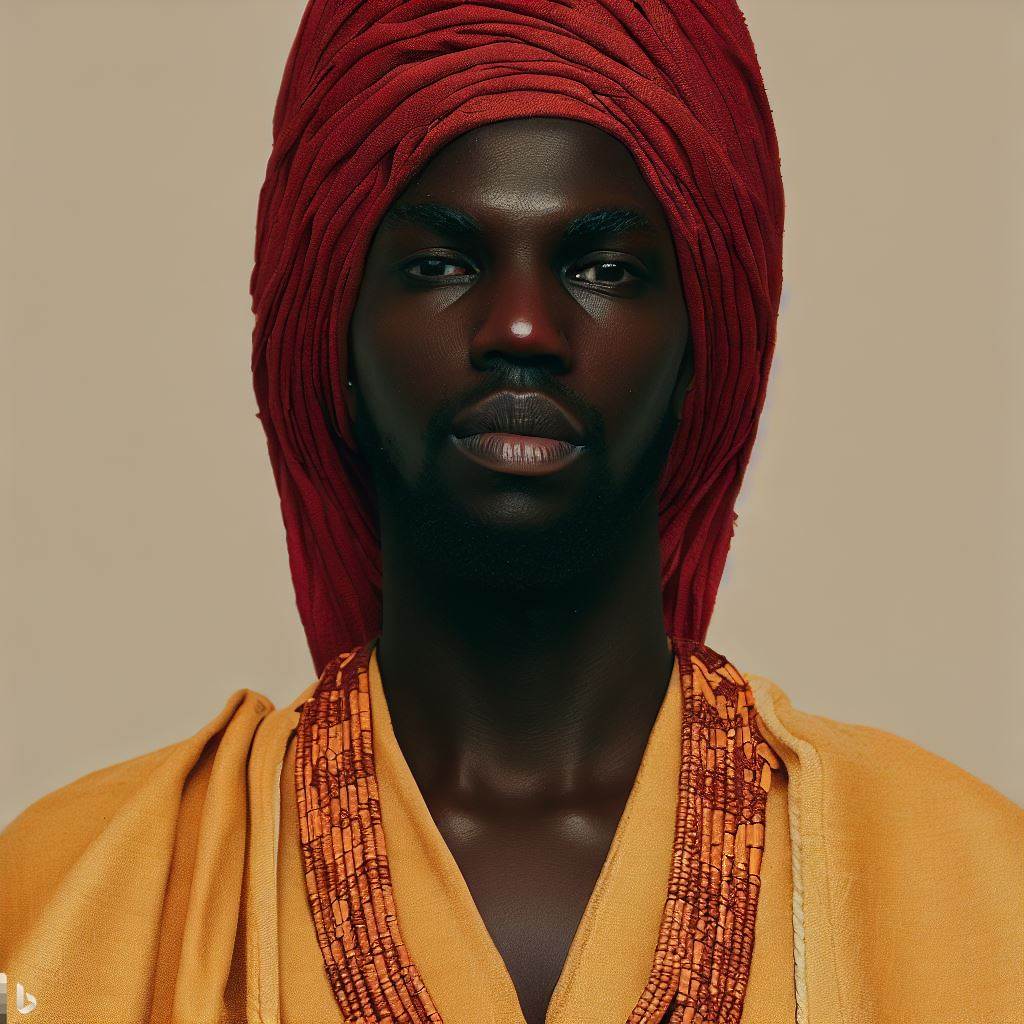Introduction
Illustration is a thriving field in Nigeria, with a high demand for talented artists. Aspiring illustrators can find numerous opportunities in various industries, including publishing, advertising, animation, and gaming.
The art of illustration plays a crucial role in conveying ideas, telling stories, and creating visual narratives. It captures the attention of audiences and brings concepts to life.
For beginners in Nigeria, understanding the basics of becoming an illustrator is essential.
This blog post will provide a comprehensive overview of the field, covering topics such as necessary skills, educational resources, and recommended tools to start their journey.
By delving into the topic, beginners can gain insights into the scope and potential of a career in illustration.
Choosing to become an illustrator in Nigeria has its advantages.
Artists have the opportunity to express their creativity, showcase their unique style, and build a portfolio that represents their skills and expertise.
The demand for illustrators across various industries ensures a steady stream of work and potential collaborations.
Additionally, illustrators in Nigeria can find fulfillment in their work by using visual storytelling to communicate important messages and make an impact on society.
Overall, becoming an illustrator in Nigeria opens doors to a fulfilling and rewarding career.
With a passion for art, dedication, and a willingness to learn and adapt, beginners can embark on a creative journey that offers both personal and professional growth.
Understanding the Role of an Illustrator
A. Definition and explanation of an illustrator
An illustrator is an artist who specializes in creating visual representations to enhance or communicate a concept, idea, or story.
They use their creativity and artistic skills to bring ideas to life and engage audiences.
B. Different types of illustration (digital, traditional, etc.)
- Digital illustration: Using digital tools such as graphic tablets or software like Adobe Illustrator to create artwork.
- Traditional illustration: Creating artwork using traditional mediums such as pencils, paints, or markers.
- Storyboard illustration: Illustrating a sequence of images to tell a story or visualize a scene.
- Children’s book illustration: Creating illustrations for children’s books, combining storytelling with visual elements.
C. Core skills and qualities required for the role
- Drawing skills: The ability to create accurate and visually appealing drawings.
- Creativity: Thinking outside the box and coming up with unique and original ideas.
- Attention to detail: Being meticulous in capturing the intricacies of an illustration.
- Communication skills: Effectively conveying the intended message through visual elements.
- Adaptability: Being open to learning new techniques and adapting to different styles and mediums.
D. The creative aspect of being an illustrator
Being an illustrator is more than just a job; it is a creative journey filled with imagination and expression. Illustrators have the power to breathe life into ideas and evoke emotions through their artwork.
They have the ability to capture the essence of a story or concept in a single image, drawing viewers into a world of their creation.
The creative aspect of being an illustrator allows for endless possibilities and the freedom to explore various styles and techniques.
Illustrators have the opportunity to collaborate with different clients and industries, including publishing, advertising, and digital media.
They play a crucial role in creating visual content that communicates messages effectively, whether it is designing book covers, illustrating marketing campaigns, or bringing characters to life in animated films.
The world of illustration is constantly evolving, with new technologies and techniques emerging.
Illustrators now have the option to work digitally, creating stunning visual effects and experimenting with a multitude of styles.
However, traditional illustration techniques still hold significance, reflecting the timeless charm and unique texture only achieved through hand-drawn artwork.
Basically, being an illustrator in Nigeria requires both passion and perseverance.
It is a journey that involves continuous learning, honing artistic skills, and staying up-to-date with industry trends.
Embracing the creative aspect of being an illustrator allows individuals to embark on a fulfilling career that celebrates their unique artistic vision and communicates stories to the world.
Read: Training and Development Resources for Illustrators in Nigeria
Building a Strong Foundation
A. The importance of developing basic drawing skills
Building a strong foundation as an aspiring illustrator in Nigeria begins with developing basic drawing skills.
These skills form the bedrock upon which all other artistic abilities are built.
Without a solid mastery of drawing, it becomes difficult to convey ideas and bring them to life through illustration.
B. Recommended art courses and workshops in Nigeria
One effective way to develop and improve drawing skills is by enrolling in art courses and workshops.
Nigeria boasts a vibrant artistic community that offers various educational opportunities for beginners.
Some recommended courses include “Introduction to Drawing” and “Figure Drawing for Beginners.”
Additionally, workshops focused on specific techniques or subjects can provide invaluable guidance.
C. Utilizing online resources and tutorials for skill development
Thanks to the internet, aspiring illustrators have access to a wealth of online resources and tutorials that can aid in skill development.
Platforms like YouTube, Skillshare, and Udemy offer a wide range of instructional videos and courses tailored to different skill levels.
These resources allow beginners to learn at their own pace and explore various techniques from the comfort of their homes.
D. Significance of practice and experimentation
Becoming a skilled illustrator requires consistent practice and a willingness to experiment.
It’s important to dedicate regular time to honing drawing skills, whether through daily sketching or working on larger projects.
By exploring different mediums, subjects, and styles, aspiring illustrators can discover their unique artistic voice and continuously improve their craft.
Generally, building a strong foundation is essential for anyone aspiring to become an illustrator in Nigeria.
Developing basic drawing skills, enrolling in recommended art courses and workshops, utilizing online resources, and emphasizing practice and experimentation are crucial steps on this journey.
With dedication, perseverance, and the right foundation, aspiring illustrators can unlock their full creative potential and make a mark in the Nigerian illustration industry.
Read: Nigerian Illustrators’ Impact on Global Art and Design
Navigating the Digital Landscape
A. Introduction to digital illustration tools and software
- Explore various digital illustration tools like Adobe Photoshop, Illustrator, and Procreate.
- Understand the features and capabilities of each software to choose the best one for your needs.
- Learn how to use different digital brushes, layers, and blending modes to enhance your illustrations.
- Experiment with graphic tablets or digital pens to improve the precision and control of your strokes.
- Take advantage of the undo and redo functions to easily correct mistakes and make revisions.
B. Popular digital illustration techniques and styles
- Familiarize yourself with popular techniques such as line art, cell shading, and photobashing.
- Experiment with different styles like minimalistic, cartoonish, realistic, or abstract to find your unique voice.
- Study works from established digital illustrators for inspiration and insight into their techniques.
- Practice using texture overlays, gradients, and masks to add depth and dimension to your illustrations.
- Master the art of composition and color theory to create visually appealing and balanced digital illustrations.
C. Benefits of using digital tools
- Digital tools offer flexibility and portability, allowing you to work anytime, anywhere.
- It provides a wide range of colors, brushes, and effects that traditional mediums may lack.
- Digital illustrations can be easily edited, resized, or repurposed without damaging the original artwork.
- Collaboration with clients and other artists becomes easier through digital sharing and feedback platforms.
- Digital illustrations can be easily transformed into various formats for printing, web design, or animation.
D. Online communities and platforms for digital illustrators
- Join online communities like DeviantArt, Dribbble, or Behance to connect with fellow digital illustrators.
- Participate in online challenges, contests, and collaborations to improve your skills and gain exposure.
- Share your work on social media platforms like Instagram, Twitter, and Facebook to showcase your talent.
- Create an online portfolio and promote your illustrations on platforms like ArtStation or Behance.
- Network with clients, art directors, and potential employers through online professional networking sites like LinkedIn.
By embracing digital tools, exploring different techniques, and engaging with online communities, aspiring illustrators in Nigeria can navigate the digital landscape to hone their skills and showcase their talent to a global audience. Happy illustrating!
Building a Portfolio
A. The role of a portfolio in showcasing skills and attracting clients
A well-crafted portfolio is crucial for aspiring Nigerian illustrators as it serves as a visual representation of their skills and abilities.
It acts as a powerful tool that helps them attract potential clients and showcase their unique style.
If you want to establish yourself as an illustrator in Nigeria, you need to demonstrate your artistic capability through a portfolio.
This collection of your best works will give clients an idea of your skills, creativity, and professionalism.
B. Tips for creating a professional and visually appealing portfolio
To create a professional and visually appealing portfolio, keep the following tips in mind:
- Select your best work: Choose illustrations that display your range of skills and represent your personal style effectively. Quality over quantity is key.
- Organize your portfolio: Arrange your illustrations in a logical and coherent way. Consider grouping them by theme, medium, or style to provide a sense of unity and coherence.
- Show diversity: Include a variety of projects that demonstrate your versatility as an illustrator. This will show potential clients that you can adapt to different styles and themes.
- Use high-quality images: Ensure that the images of your illustrations are high-resolution and showcase your work in the best possible way. Crisp and clear visuals are essential to make a strong impression.
- Pay attention to presentation: Present your illustrations in a visually pleasing manner. Use a clean and minimalistic design that directs the focus on your artwork.
C. Relevant projects and experiences to include in the portfolio
When building your portfolio, it is important to include relevant projects and experiences that showcase your skills and suitability for the Nigerian illustration industry.
Consider the following:
- Collaborations: Highlight any collaborative projects you have worked on, especially with well-known individuals or reputable organizations. This will add credibility to your portfolio.
- Personal projects: Include personal illustrations that reflect your passion and interests. Personal projects demonstrate your commitment to your craft and can impress potential clients.
- Client work: Showcase successful projects you have completed for clients. Displaying your ability to understand and fulfill client requirements will build confidence in your potential clients.
D. The need for a versatile portfolio that reflects personal style
It is vital for Nigerian illustrators to create a versatile portfolio that reflects their personal style while also showcasing adaptability.
Being able to cater to various clients’ needs will increase your chances of securing projects.
A versatile portfolio demonstrates that you can handle different themes, art styles, and mediums.
However, it is crucial to maintain a consistent personal style throughout your portfolio.
This will make your work recognizable and help you stand out in the industry.
Essentially, building a well-curated portfolio is essential for aspiring illustrators in Nigeria. It plays a significant role in attracting clients and showcasing your skills.
Following the tips mentioned, organizing relevant projects, and maintaining a versatile yet distinctive style will greatly increase your chances of success in the industry.
Read: Ethics in the Illustrator Profession: A Nigeria Perspective

Networking and Collaborations
A. The importance of networking in the illustration industry
Networking plays a crucial role in building a successful career as an illustrator in Nigeria. It involves making connections and building relationships with fellow artists, clients, and industry professionals.
By networking, you can learn from others, gain exposure, and increase your chances of getting hired for projects.
It allows you to showcase your work to a wider audience and stay updated on the latest trends and opportunities in the industry.
Building a network can lead to referrals and collaborations, as well as valuable mentorship and guidance from experienced professionals.
B. Joining relevant art communities, groups, and forums
To expand your network, join online art communities, groups, and forums that cater to illustrators in Nigeria.
These platforms provide opportunities to connect and engage with like-minded individuals.
Share your work, ask for feedback, and participate in discussions.
Engaging in these communities can expose you to different perspectives, techniques, and styles, allowing you to grow as an artist.
C. Attend art events, workshops, and exhibitions to meet potential clients
Attending art events, workshops, and exhibitions is a great way to meet potential clients and industry professionals.
These gatherings provide opportunities to showcase your work and make connections.
Bring your portfolio, business cards, and a positive attitude. Engage in conversations, exchange information, and express your passion for illustration.
Follow up with the contacts you make to maintain the connection and explore potential collaborations or projects.
D. Seek collaborations with fellow artists and creatives for exposure
Collaborating with fellow artists and creatives not only allows you to learn from each other but also exposes your work to a wider audience.
Look for artists whose style complements yours or who have a similar target audience.
Collaborate on projects, such as creating illustrations for a book or designing for a brand.
This can help you gain exposure and expand your portfolio.
Reach out to artists through social media, art communities, or by attending relevant events.
Be professional, articulate your ideas clearly, and propose mutually beneficial collaborations.
Networking and collaborations are essential for any illustrator looking to build a successful career in Nigeria.
By actively connecting with others in the industry, joining relevant communities, attending events, and seeking collaborations, you can expand your network, gain exposure, and open doors to exciting opportunities in the illustration field.
Marketing and Promoting Yourself as an Illustrator
A. The significance of self-promotion and branding
Marketing and promoting yourself as an illustrator is crucial for success in the competitive industry.
To stand out, you need to develop a strong personal brand that represents your style and values.
Your branding should be consistent across all platforms and help you establish a unique identity.
B. Creating an online presence through a personal website or social media
Building an online presence is essential for gaining visibility and attracting clients.
A personal website is a great platform to showcase your portfolio, share your artistic process, and provide contact information.
Social media accounts such as Instagram, Twitter, and LinkedIn can also help you reach a wider audience.
C. Utilizing social media platforms to showcase artwork and engage with the audience
Social media platforms are powerful tools for showcasing your artwork and connecting with potential clients.
Regularly update your social media accounts with high-quality images of your illustrations.
Engage with your audience by responding to comments, organizing Q&A sessions, and sharing behind-the-scenes glimpses of your work.
Publish Your Professional Profile, Business or Brand
Showcase your expertise, gain trust, and boost visibility instantly on Professions.ng.
Publish NowD. Collaborating with influencers or bloggers for wider reach
Collaborating with influencers or bloggers who have a large following in your target audience can significantly boost your exposure.
Identify influencers or bloggers whose aesthetic or niche aligns with your own work and reach out to them.
By featuring your illustrations on their platforms, you can gain access to their followers and potentially attract new clients.
Remember to provide high-quality images and engaging content that will captivate their audience.
In general, marketing and promoting yourself as an illustrator in Nigeria require strategic efforts to build your personal brand.
Establishing an online presence through a website and social media accounts is essential for gaining visibility.
Utilizing social media platforms to showcase your artwork and engage with the audience can help you attract potential clients.
Collaborating with influencers or bloggers can also expand your reach and provide new opportunities.
By focusing on your self-promotion and branding, you can increase your chances of success in the Nigerian illustration industry.
Read: Balancing Art and Business as an Illustrator in Nigeria
Finding Opportunities and Freelance Work
A. Different avenues for finding illustration opportunities
- Attend local art exhibitions, fairs, and workshops to connect with potential clients and fellow artists.
- Join professional art associations and organizations to stay updated on industry news and job opportunities.
- Collaborate with other artists on joint projects to showcase your skills and expand your network.
- Approach local businesses, publishers, and media outlets to inquire about potential illustration projects.
B. Utilizing online platforms for freelance projects
- Create an online portfolio showcasing your best illustration works to attract clients.
- Join freelance job platforms like Upwork, Fiverr, or Freelancer to find illustration gigs.
- Participate in online art communities and forums to interact with potential clients and fellow artists.
- Leverage social media platforms like Instagram, Twitter, and Facebook to showcase your illustrations and attract clients.
C. Networking with potential clients and agencies
- Attend industry conferences, seminars, and meetups to network with clients and agencies.
- Establish professional relationships with art directors, editors, and designers who can refer you to potential clients.
- Collaborate with influencers and bloggers in your niche to gain exposure and attract potential clients.
- Maintain a strong online presence and regularly engage with your audience through comments and direct messages.
D. The need to continuously seek new projects to grow as an illustrator
- Always have a proactive mindset and actively seek out new opportunities.
- Regularly update your portfolio and add new projects to showcase your evolving skills.
- Stay updated on industry trends and adapt your style to cater to current demands.
- Attend workshops, webinars, and online courses to enhance your skills and expand your knowledge.
- Seek feedback from clients and peers to improve your craft and deliver exceptional work.
In essence, becoming a successful illustrator in Nigeria requires actively seeking opportunities, both offline and online.
Exploring different avenues, utilizing online platforms, networking, and continuously seeking new projects are vital in growing as an illustrator.
Stay proactive, showcase your best work, and adapt to industry trends to thrive in this competitive field.
Overcoming Challenges and Staying Motivated
A. Common challenges faced by beginner illustrators
- Limited resources and access to quality art supplies can be a challenge, but start with what you have and gradually invest in better tools.
- Lack of exposure and opportunities can make it difficult to gain recognition, so network and showcase your work online and at local events.
- Balancing artistic passion with financial stability is a common struggle, so consider freelancing alongside personal projects to generate income.
B. Strategies to overcome self-doubt and creative blocks
- Embrace experimentation and don’t be afraid to make mistakes. Creativity thrives when you step out of your comfort zone.
- Surround yourself with a supportive community of fellow artists who can provide encouragement and inspire you to keep going.
- Take regular breaks and engage in other activities that spark your creativity. Sometimes stepping away from your work can lead to fresh ideas.
C. Seeking feedback and constructive criticism to improve
- Joining online art communities or attending art workshops allows you to connect with experienced artists who can provide valuable insights.
- Share your work with trusted friends or mentors who can offer constructive criticism to help you identify areas for improvement.
- Embrace feedback with an open mind and use it as a stepping stone for growth rather than taking it personally.
D. Staying motivated through continuous learning and personal growth
- Expand your artistic horizons by exploring different styles, mediums, and techniques. Continuous learning keeps your skills sharp and adds versatility to your work.
- Set goals and create a roadmap for your artistic journey. Breaking your long-term aspirations into achievable milestones will keep you motivated.
- Celebrate your achievements, no matter how small. Recognizing your progress will boost confidence and encourage you to keep pushing forward.
In a nutshell, becoming an illustrator in Nigeria may come with its challenges, but with the right mindset and strategies in place, you can overcome obstacles and stay motivated.
Address common challenges, overcome self-doubt, seek feedback, and prioritize continuous learning to unlock your full potential as an illustrator.
Discover More: Cultural Influence in Nigerian Costume Design Practice
Conclusion
A. Recap the key points discussed in the blog post
Throughout this blog post, we have explored the steps to becoming an illustrator in Nigeria.
We started by discussing the importance of developing your skills through practice and studying the works of other artists.
We also highlighted the significance of building a strong portfolio to showcase your talent and attract potential clients.
Moreover, we emphasized the need to network with other illustrators and join relevant communities to gain exposure and opportunities.
B. Encourage readers to pursue their passion for illustration
If you have a passion for illustration, we strongly encourage you to pursue it.
Don’t let fear or self-doubt hold you back. Keep practicing, learning, and growing as an artist.
Your unique talents and creative vision can make a significant impact in the field of illustration.
C. Additional resources for further learning and growth
To further enhance your skills and knowledge, we recommend exploring online platforms such as Skillshare and Udemy, which offer a wide range of courses on illustration.
Additionally, joining local art workshops, attending exhibitions, and reading books on art and design can greatly contribute to your growth as an illustrator.
D. Closing remarks and call-to-action for readers to start their journey as illustrators in Nigeria
All in all, becoming an illustrator in Nigeria requires dedication, perseverance, and continuous learning.
It may not always be easy, but with passion and commitment, you can turn your dreams into reality.
So, take that first step today and start your journey as an illustrator. Embrace the opportunities and challenges that come your way, and remember that your unique artistic voice deserves to be heard.
Start creating, start sharing, and unleash your creativity to the world!
Remember, greatness awaits you in the world of illustration.




